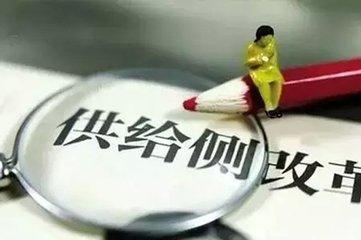BEIJING, Jan. 10 (Xinhua) -- China's supply-side structural reform has delivered initial results and started to provide new impetus for economic growth, the country's top economic planner said Tuesday.
"China has met this year's target of reducing 45 million tons of steel and 250 million tons of coal production capacity ahead of schedule," Xu Shaoshi, head with the National Development and Reform Commission (NDRC) told a press conference.
He said that steel firms under the China Iron and Steel Industry Association had posted a profit of 33.1 billion yuan (USD4.76 billion) in the first eleven months of 2016, compared with a loss of 52.9 billion yuan in the same period of 2015.
Xu said that in terms of inventory reduction, China's commercial housing inventory had fallen for ten consecutive months.
The reform, proposed by Chinese policy makers at the end of 2015 to resolve structural imbalances in the economy, has focused on five tasks: cutting industrial capacity, reducing the housing inventory, cutting leverage, lowering corporate costs and improving weak economic links.
Xu said that the government's efforts in these areas had paid off and provided precious experiences for solving deeply-rooted problems in the nation's economy, and that China would embrace a new stage of economic growth.
He said that last year was only a start, and that China was facing a tougher battle in 2017, adding that this year the government would set a higher goal for reducing overcapacity and was determined to shut down "zombie enterprises."
Besides steel and coal industries, he said the Chinese government would target other sectors with low production capacity utilization rates or serious overcapacity issues.
In face of drastic housing price rises in economically strong cities and huge inventories of unsold houses in less developed areas, he said the the government was working on a long-term mechanism to ensure the healthy and stable development of the real estate sector.
China will continue to press ahead with supply-side structural reform in 2017, aiming for tangible results in key reform tasks, according to the the Central Economic Work Conference last month, which set the country's guiding economic policies and priorities for the new year.




 A single purchase
A single purchase









